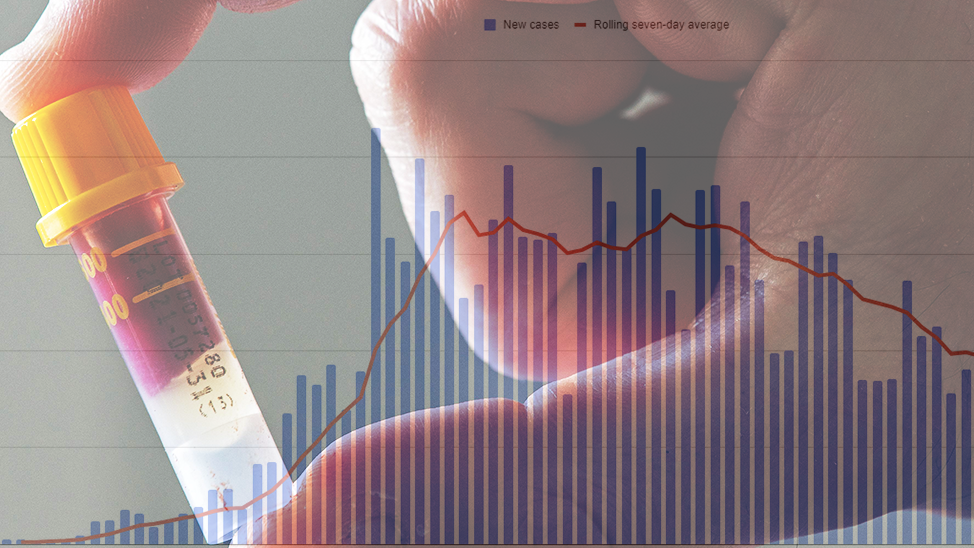'Flashbacks at the end of the day, then dreams at night - you can’t escape it'
- Published
The wellbeing 'haven' for NHS staff
"You have flashbacks at the end of the day, you dream about it at night...you can't escape it."
These are the powerful words of one doctor who stares death in the face every single day he fights to save patients from the relentless surge of coronavirus.
As patient after patient struggles to get through the virus, staff keep going as best they can, dealing with unprecedented numbers of critically-ill people.
And almost all say they were not emotionally or psychologically prepared for the experience.
'A new experience'
It's not just the patients who need help to cope with this killer disease. Some staff need psychological first-aid to deal with what they have witnessed.
Emergency doctors in an East Ayrshire hospital felt stress and anxiety levels rising and decided to do something about it before staff became overwhelmed.
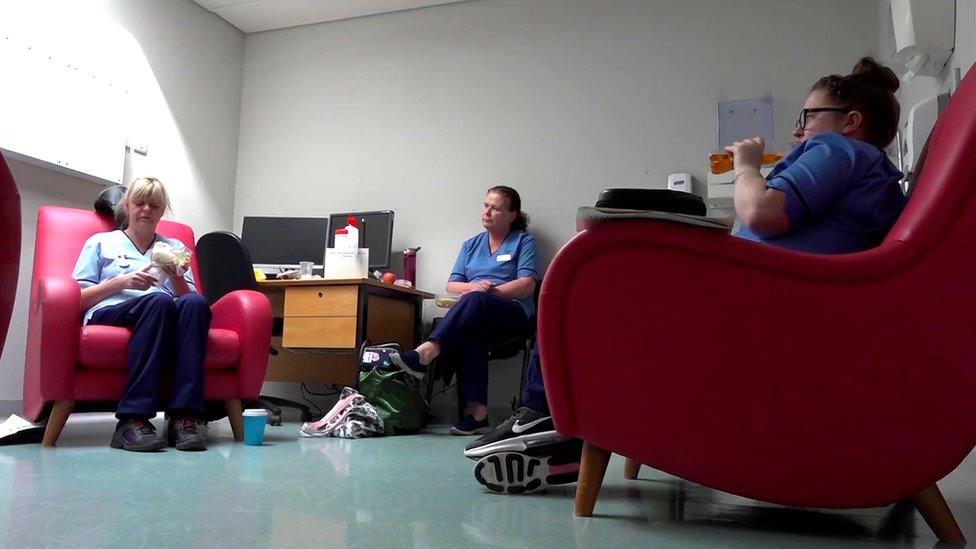
Staff can come and speak to each other, get advice and psychological support, or just enjoy a moment of calm
In a quiet corner of hectic Crosshouse Hospital in Kilmarnock, the staff Wellbeing Centre is a place of respite away from the heat, the noise and the stress of emergency care.
A month ago this was an outpatient clinic, but as the numbers of Ayrshire residents becoming sick increased, so too did the realisation that it wasn't just the patients who felt the effects of the pandemic and the response.
Emergency medicine consultant Dr Julie Gordon saw it coming.
She told BBC Scotland: "We said we have to do something to support our staff because it's a new experience for all of us that we are all anxious about.
"We don't know the answers to it all and we really need to support each other going through this."
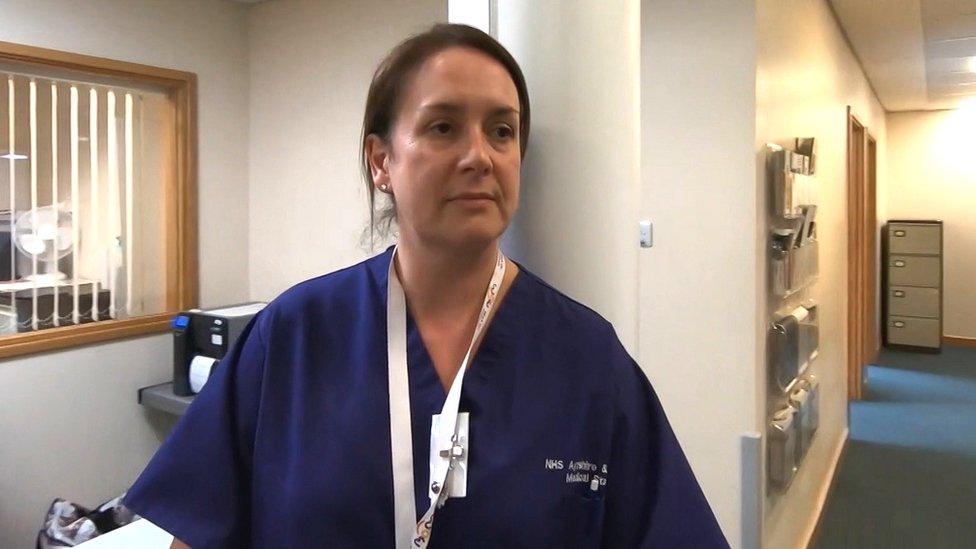
Dr Julie Gordon felt anxiety levels rising
Crosshouse has more than doubled its intensive care capacity since the virus hit Scotland.
Covid-19 and new procedures for treating it have led to new pressures on those caring for the sick.
Respiratory consultant Dr Hans Hartung is one of a network of clinicians in the hospital providing peer-to-peer support. But many of them are facing the same challenge as the colleagues they are helping.
He said: "We unfortunately see patients who are very unwell - some of them are dying - and normally we would spend quite some time to sit down with the person and the family and the nearest loved ones, to be kind to them and to speak with them. But with the current situation that is not possible so its feels like a huge disconnect at the very basic human level.
"I, as a clinician, struggle with that."
Dr Hartung says medics were not emotionally or mentally prepared for what has happened.
"I can't leave it behind completely, you have flashbacks at the end of the day, you dream about it at night, you wake up in the morning and start thinking about it," he said. "You can't escape it entirely - it is so intense and present all the time."
Rest and reflection
The area is filled with drawings, the symbol of this pandemic and the NHS - the rainbow - and post-it notes with affirmations written by the staff who have used the space.
It is a place where staff can come and get a break from that intensity, to get support. It is open to everyone working at the hospital for rest and reflection and, if needed, help.
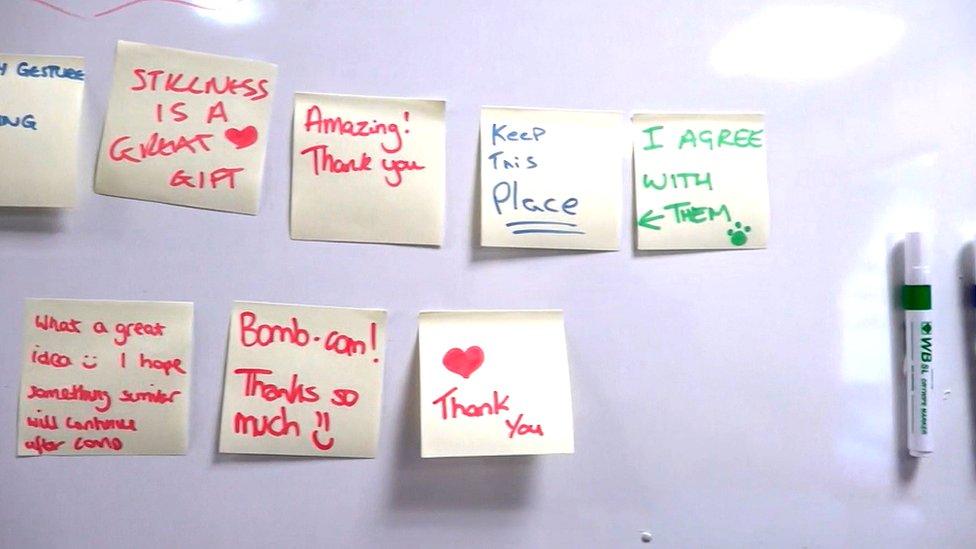
Positive messages are posted around the room
What's being offered is counselling to get them through right now, and the chance to explore in more depth, with mental health professionals, the extraordinary challenges staff on the front line are facing.
Dr Sharon Mulhern, consultant clinical psychologist, believes some of the trauma will be lasting for staff.
She said: "As we move through this pandemic, and as we come out the other side of it, and we will come out the other side of it, will some people potentially feel more mentally scarred by some of their experiences? That's possible.
"What we are hoping is that the wellbeing suite will try and give people the opportunity to defuse some of that in the earlier stages that may prevent some of the psychological problems in the future."

A SIMPLE GUIDE: How do I protect myself?
AVOIDING CONTACT: The rules on self-isolation and exercise
HOPE AND LOSS: Your coronavirus stories
LOOK-UP TOOL: Check cases in your area
TESTING: Can I get tested for coronavirus?

- Published28 April 2020
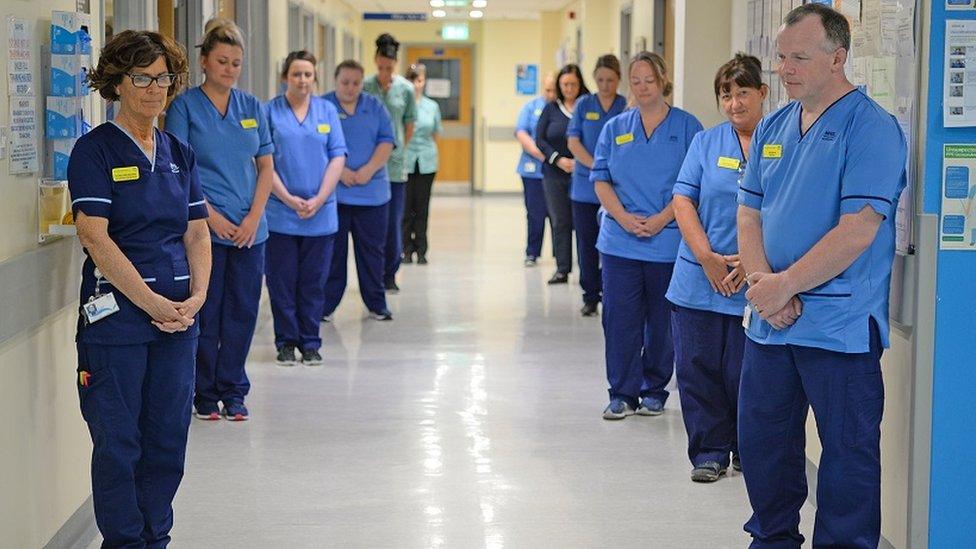
- Published22 July 2020
